You can depend on us for any HVAC service, installation or repair.
NC Heat and Air License #H3-34080
Premiere Mechanical is fully insured
Premiere Mechanical is fully insured
Indoor air quality (IAQ) is a critical aspect of maintaining a healthy and comfortable living environment. As an HVAC company, we understand the importance of ensuring that the air inside your home is clean, fresh, and free of pollutants. This comprehensive guide will delve into various aspects of indoor air quality, addressing common concerns and questions while highlighting the essential tools and practices to improve your home’s air quality.
Optimal indoor air quality should have low levels of pollutants, allergens, and contaminants. The air should be free of excessive dust, mold spores, pet dander, volatile organic compounds (VOCs), and other harmful substances. The ideal humidity level should be between 30-50%, and the temperature should be comfortable without causing excess dryness or humidity.
Poor indoor air quality can manifest in various symptoms, including:
If you or your family members experience these symptoms regularly, it might be time to assess your indoor air quality.
Improving indoor air quality involves several steps:

Poor indoor air quality poses several health risks, including respiratory diseases, cardiovascular problems, and worsened allergy and asthma symptoms. Long-term exposure to polluted indoor air can lead to chronic health issues and decreased overall well-being.
An air quality index (AQI) of 70 is considered moderate. It means that air quality is acceptable; however, some pollutants may pose a risk to people who are particularly sensitive to air pollution. It’s advisable to maintain an AQI below 50 for optimal health.
The amount of ventilation needed depends on the size of your home and the number of occupants. A general rule is to ensure that the entire volume of air in your home is exchanged at least once every three hours. This can be achieved through natural ventilation (opening windows and doors) and mechanical ventilation systems.
If you’re experiencing symptoms such as frequent headaches, respiratory issues, or allergies that improve when you leave the house, your indoor air might be to blame. Conducting home air quality testing can help identify specific issues.
Dry indoor air often results in symptoms like dry skin, irritated sinuses, and static electricity. You can use a hygrometer to measure humidity levels in your home. Ideal indoor humidity levels should be between 30-50%.
Cleaning your house air involves several steps:
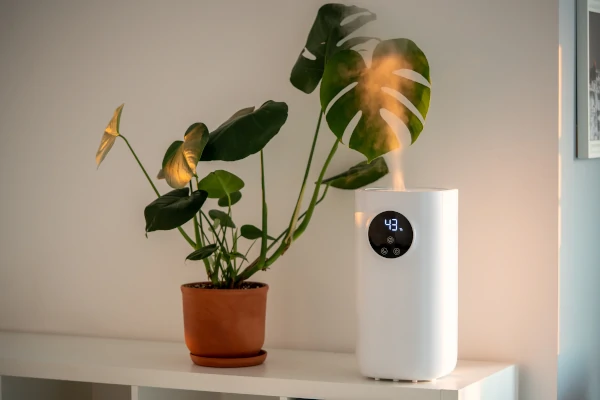
Yes, air purifiers can be very effective at removing airborne pollutants such as dust, pollen, pet dander, and VOCs. However, their effectiveness depends on the quality of the purifier and proper placement within the home.
The leading cause of indoor air quality problems is inadequate ventilation. This can lead to a buildup of pollutants from various sources such as cleaning products, building materials, and outdoor pollution.
Primary causes include:
Indoor air can be tested using an air quality meter or by hiring a professional for residential air quality testing. These tests can identify levels of common pollutants such as VOCs, mold spores, and particulate matter.
Living in an environment with poor air quality can lead to a range of health problems, including respiratory issues, heart disease, and exacerbation of allergies and asthma. Long-term exposure can significantly impact overall health and quality of life.
Using an indoor air quality monitor or air quality meter can provide real-time data on the cleanliness of your air. Observing for dust accumulation and noting any health symptoms can also indicate air quality issues.
To get fresh air in your house, you can:
Airing out your home should be done regularly, ideally daily, for at least 15-30 minutes. This helps to reduce indoor pollutants and brings in fresh air.
Yes, temperature can affect indoor air quality. High temperatures can increase the concentration of certain pollutants, while low temperatures can lead to condensation and mold growth. Maintaining a comfortable and stable temperature is important for good indoor air quality.
Signs that your house might be toxic include persistent health symptoms, visible mold growth, strange odors, and excessive dust. Conducting an air quality inspection can help identify specific toxins.
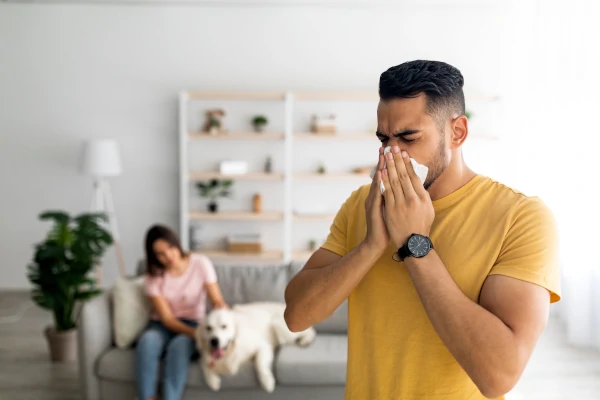
Toxic house syndrome refers to a situation where the air quality inside a home is so poor that it causes significant health issues for the occupants. This can be due to various factors, including mold, chemicals, and inadequate ventilation.
If you suspect your house is making you sick, consider the following steps:
A bowl of water can help to humidify a room, though its effectiveness is limited. For better results, use a humidifier to maintain optimal humidity levels.
To keep air moist in your bedroom at night:
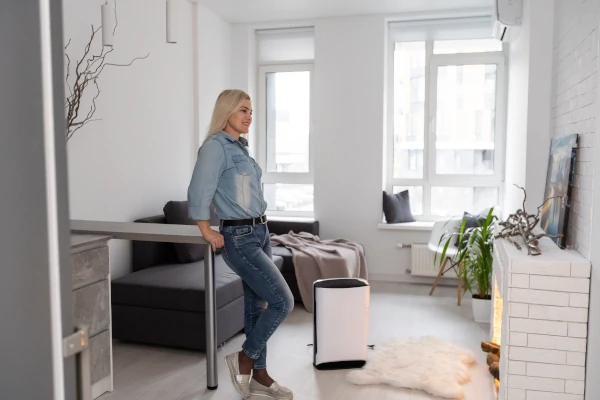
Stopping dry indoor air involves:
While air purifiers are effective, combining them with other methods such as proper ventilation, regular cleaning, and the use of houseplants can further improve indoor air quality.
The best air purifier depends on your specific needs, but models from brands like Dyson, Honeywell, and Blueair are highly rated for their efficiency and performance.
Place your air purifier in the room where you spend the most time, such as the bedroom or living room. Ensure it is not obstructed and can circulate air effectively.
Failing to air out your house can lead to a buildup of indoor pollutants, increased humidity levels, and potential health issues such as respiratory problems and allergic reactions.
In conclusion, maintaining good indoor air quality is essential for your health and well-being. Regular use of an indoor air quality monitor, installing a home air filtration system, and ensuring proper ventilation are key steps to improving the air you breathe. If you’re concerned about your indoor air quality, professional air quality testing and inspection can provide valuable insights and solutions. As a local HVAC company in your area, Premiere Mechanical is here to help you create a healthier and more comfortable home environment. Give us a call at (919) 596-2008 today.


Installation, repair, and maintenance of furnaces, heat pumps, and boilers.
Installation, repair, and maintenance of heat pumps and all types of air conditioners and cooling systems. Get the best products and services.
Installation, repair, and maintenance of furnaces, heat pumps, and boilers.
Air purification systems, humidifiers, ventilation system design, installation, and ductwork services.
We repair heating, ventilation, and air conditioning (HVAC) systems, which are crucial for maintaining indoor comfort by regulating temperature, airflow, and air quality.
Comprehensive inspection of entire HVAC system to identify any potential issues. Priority service and discounts.
With a long-standing presence in the industry, the company has a proven track record of reliability and customer satisfaction.. We pride ourselves on being on time and we offer emergency services.
Premiere Mechanical employs certified and experienced technicians who are skilled in handling a wide range of HVAC systems and issues. Together our techs have more than 86 years of experience.
We provide clear, honest pricing with detailed quotes and no hidden fees, ensuring customers know what to expect and exactly what the service will include.
We maintain a focus on delivering high-quality workmanship and exceptional customer service. Friendly, respectful, and helpful customer service makes a significant impact which is why we have strong positive reputation within the community.
From installation and repairs to maintenance and emergency services, Premiere Mechanical provides a comprehensive range of HVAC solutions that are environmentally friendly. Our customized HVAC solutions are designed to meet the specific needs of residential and commercial clients.
All of our products come with manufacturer warranties and we guarantee all of our service work. We are not comfortable until you are comfortable.










Our company offers the most efficient and the greenest options for home heating and cooling.
The Premiere Mechanical team uses only the best and particularly low-noise drive components.
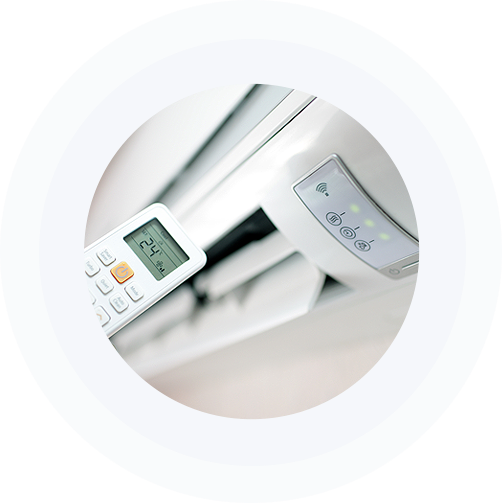
We offer a wide range of high quality heating and cooling systems, water heaters and conditioning supplies and equipment.
You have the manufacturer’s warranty on all equipment and our customer satisfaction guarantee on service.
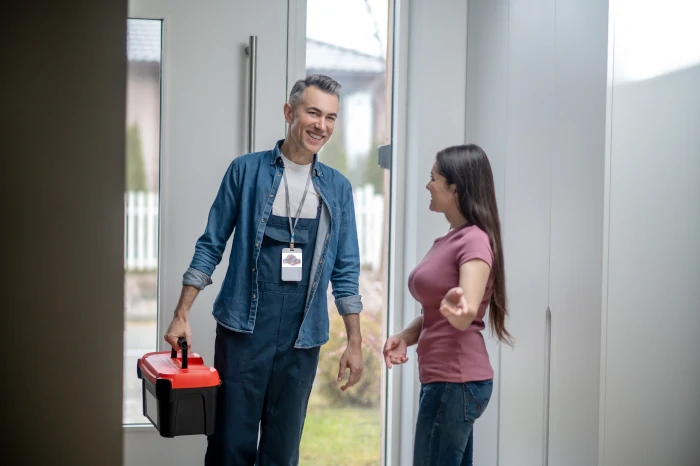
Durham, Bahama, Raleigh, Chapel Hill, Hillsborough, Roxboro, Timberlake, Rougemont, Creedmoor, Mebane, Cedar Grove, and Efland, NC.
Durham, Bahama, Raleigh, Chapel Hill, Hillsborough, Roxboro, Timberlake, Rougemont, Creedmoor, Mebane, Cedar Grove, and Efland, NC.

The team at Premiere Mechanical believes in community and enjoys supporting local community events in and around Bahama and Durham, NC. You can see us supporting great causes like AIM Volleyball, First Pentecostal Church Golf Tournament, and Bahama Day.